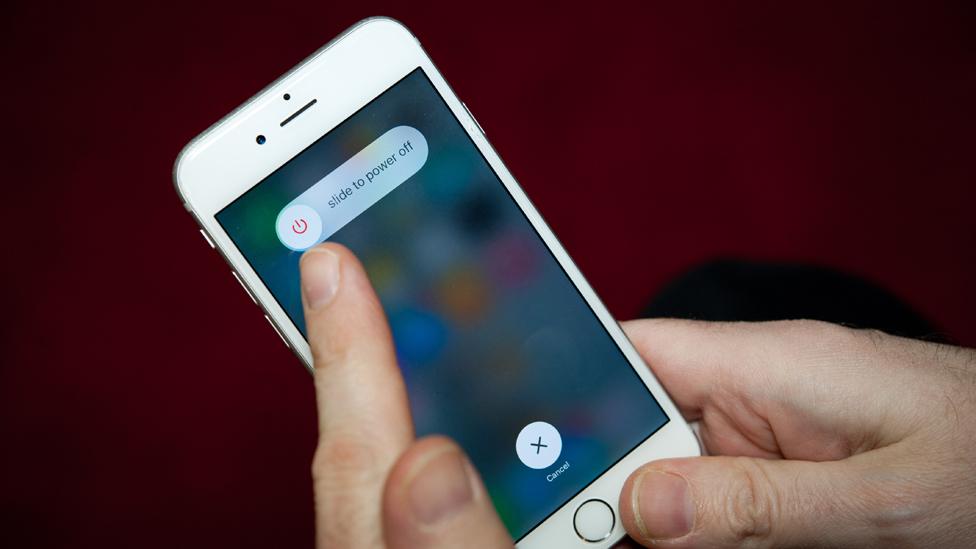An anti-social experiment
- Published
- comments
Students from Tarporley High School in Cheshire try to last a week on a digital detox.
Facebook, Snapchat, Instagram, Twitter - social media tools that only entered our lives in the last decade but quickly became indispensable. Now a thousand school children in Cheshire are trying to find out what life was like in the era before social media.
BBC News School Report and BBC Radio 5 live have challenged pupils at Tarporley High School to go through a digital detox. From last Wednesday they agreed to give up all social media, YouTube and video games for a week. Some adults - not me, I hasten to add - might think that was pretty painless. After all, the pupils' phones were not being confiscated and they were still allowed to call, email or text.
But what this experiment has shown so far is just how central to the lives of teenagers social networks and messaging tools have become. Three of the Year-10 students have been reporting on the detox for School Report. Here's what they say about the assembly where the idea was explained:
"The thought of having real conversations and maybe even reading a book seems to be way too much to handle. Many hands are raised when asked who uses games but pretty much everyone seems to use social media on a day to day basis." One teacher tells the reporters he welcomes the experiment: "Social media is becoming increasingly invasive, verging on obsessive."
But if your primary means of communication is taken away that is bound to cause problems. Twenty five years ago, teenagers would have been furious if they had been told they could not use the home telephone. Today, taking away Snapchat or Facebook Messenger can provoke a similar reaction.
It was bad enough on school days, but the pupils had been dreading a weekend without social media. So on Monday I spoke to three of the pupils to see how they were getting on. Daisy, who's 14, said she had been quite positive about the experiment in advance - she had worked out she had spent 16 hours on Snapchat the previous week and was quite looking forward to not feeling the pressure to check her phone all the time.
But she had found it hard over the weekend: "I had to turn off notifications not to be tempted." She had rediscovered some old forms of communication - sending emails to friends abroad, and even making phone calls.

"I'm not totally obsessed, I do have a normal life," says 15-year-old Georgia about her use of social media. But beforehand she still worried what her friends would think if she simply disappeared from social media. Seeing that she had Snapchat messages that she could not open had been really hard, but there has been an upside: "I've been looking at newspapers and magazines," she says, "and talking to my parents about other things than them being my taxi drivers!"
Patrick, who's 14 and spends a lot of time watching YouTube and talking to friends while playing Fifa, had found the weekend painful. "I was in the car and I must have picked up the phone 50 times and then put it down." Organising meetings with friends had been difficult - he had to phone them individually. "None of us speak on the phone or email. It's more efficient to use things like Snapchat - it's cheaper and nobody is listening."
Of the 1,000 pupils who started the digital detox, around a quarter have so far admitted to giving up. Among them is Sam, who broke the pledge when he was due to play tennis and didn't have the phone number of the student he was due to meet. He never calls anyone and has no numbers stored in his phone, so the only answer was to use Snapchat to make the arrangement.
It sounds as though most of the school's pupils will be mightily relieved when the detox ends and they can return to the modern communications era. But the Tarporley High School librarian might like the experiment to continue - she says she has never seen as many books borrowed as during the last week.